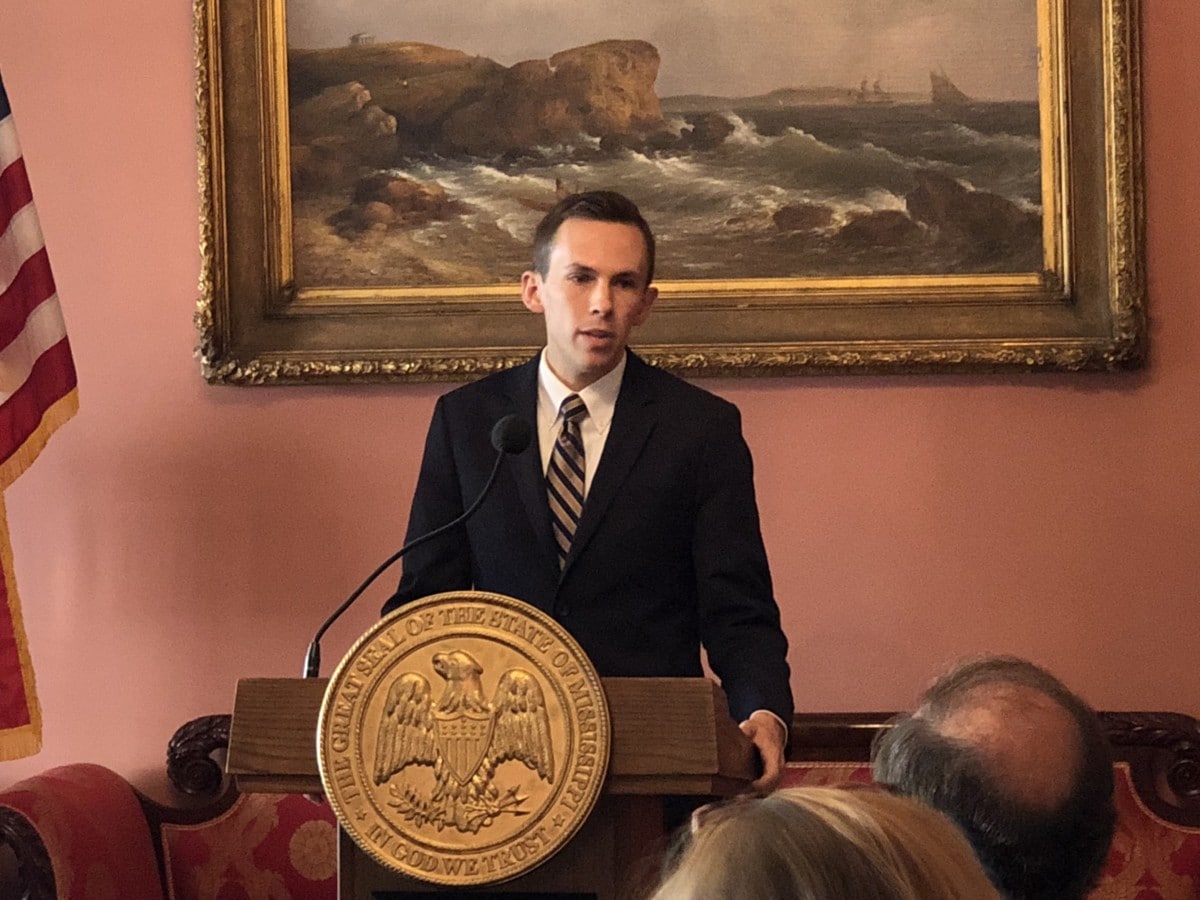State Auditor Shad White is looking to prevent future fraud at Mississippi’s community colleges. White’s office released a report recently showing that, while all Mississippi four-year universities have internal auditors, no Mississippi community colleges employ internal auditors. The report recommends changes to state law to address that issue and describes other measures to help prevent fraud in higher education.
The study was designed to test how well Mississippi community colleges and universities comply with the Internal Audit Act of 2003.
“This report produced by our performance audit division is alarming after our investigation into the embezzlement at Coahoma Community College,” said State Auditor White. “Internal auditors at community colleges can help prevent future embezzlements like Coahoma’s, and my goal is to prevent embezzlement from happening in the first place.”
The Office of the State Auditor reviewed internal audit procedures for each of the nine universities and the fifteen community colleges mentioned in the Act, which states these institutions “shall, subject to specific appropriation of available funding, employ an agency internal audit director.” Mississippi community colleges have argued that they have never been given “specific appropriation[s]” for internal auditors and therefore do not employ them.
White said his office will propose legislation this coming session that would remove the “subject to specific appropriation” language from the Act, thus requiring internal auditors at all Mississippi community colleges and universities.
The auditor’s report also mentions ways other states ensure internal audits are conducted. Fifteen other states’ laws were reviewed, and six of those states require various public entities or agencies to hire internal auditors.
“We have to work on the front end to prevent that stuff from happening in the first place,” White said. “This study is targeted at making sure that this kind of thing doesn’t happen again at a different community college. What we found in the study is all of our IHL universities have internal audit programs and that’s great… At the 15 community colleges, no internal auditors.”
While some Mississippi community colleges reported hiring private firms to evaluate internal controls or having internal audit duties performed by staff in addition to normal duties, having a standalone internal auditor is a stronger means of preventing fraud.
“Having internal auditors on staff, working with community colleges every day, is an important measure to prevent embezzlement like what we saw in Coahoma County,” said White.
In September 2018, State Auditor White issued a nearly $1 million demand for embezzlement against two former Coahoma Community College employees. These two individuals in the community college’s purchasing office were able to embezzle undetected for four years until a whistleblower reported suspicious activity.
During the study, auditors also discovered that no universities have peer reviews of their audits. Peer reviews involve outside auditors completing a review of the auditing methods of the universities’ audit divisions. These reviews are common practice for the Institute of Internal Auditors, and the State Auditor’s office itself undergoes peer review from out-of-state auditors. After this recommendation from the State Auditor, the Institutions of Higher Learning Internal Audit Department has prioritized establishing a peer review program for universities under its jurisdiction.
“We will continue to maintain a zero tolerance policy toward embezzlement and theft of public money,” White said. “But we also want to stop theft before it starts. I hope this report will help our public institutions put protections into place to prevent that theft before it happens. Our students and communities cannot afford more million dollar losses to fraud. It isn’t fair to those students and the taxpayers, so we must be vigilant in stopping it.”




